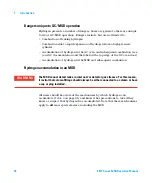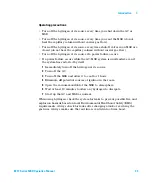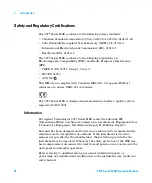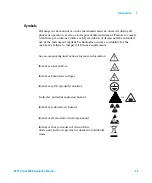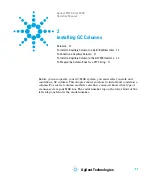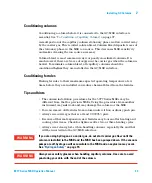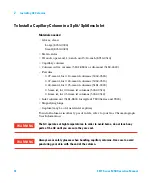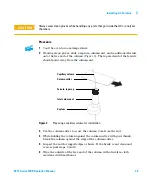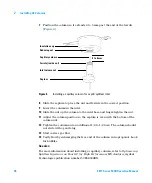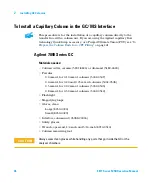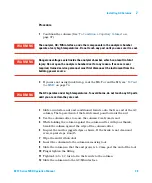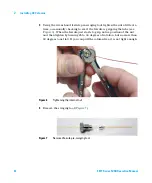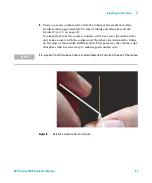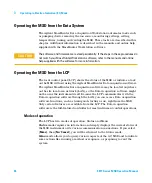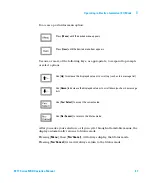
34
5977 Series MSD Operation Manual
2
Installing GC Columns
To Install a Capillary Column in a Split/Splitless Inlet
Materials needed
•
Gloves, clean
•
Large (8650-0030)
•
Small (8650-0029)
•
Metric ruler
•
Wrench, open-end, 1/4-inch and 5/16-inch (8710-0510)
•
Capillary column
•
Column cutter, ceramic (5181-8836) or diamond (5183-4620)
•
Ferrules
•
0.27-mm id, for 0.10-mm id columns (5062-3518)
•
0.37-mm id, for 0.20-mm id columns (5062-3516)
•
0.40-mm id, for 0.25-mm id columns (5181-3323)
•
0.5-mm id, for 0.32-mm id columns (5062-3514)
•
0.8-mm id, for 0.53-mm id columns (5062-3512)
•
Inlet column nut (5181-8830 for Agilent 7890 Series and 7820)
•
Magnifying loupe
•
Septum (may be old, used inlet septum)
To install columns in other types of inlets, refer to your Gas Chromatograph
User Information.
WA R N I N G
The GC operates at high temperatures. In order to avoid burns, do not touch any
parts of the GC until you are sure they are cool.
WA R N I N G
Always wear safety glasses when handling capillary columns. Use care to avoid
puncturing your skin with the end of the column.
Summary of Contents for G7035A
Page 1: ...Agilent Technologies Agilent 5977 Series MSD Operation Manual ...
Page 30: ...30 5977 Series MSD Operation Manual 1 Introduction ...
Page 88: ...88 5977 Series MSD Operation Manual 3 Operating in Electron Ionization EI Mode ...
Page 170: ...170 5977 Series MSD Operation Manual 6 CI Maintenance ...
Page 171: ......

